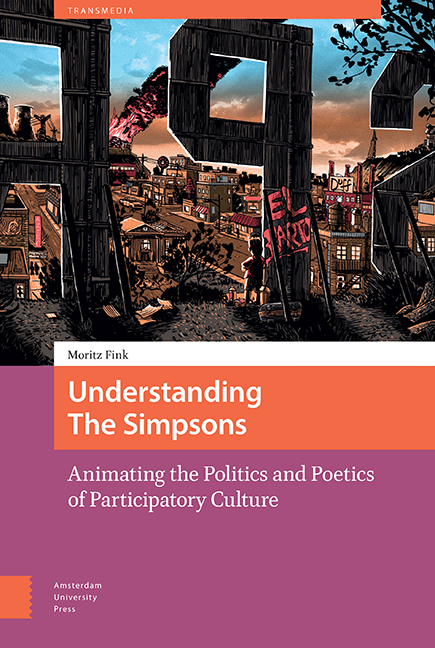Book contents
- Frontmatter
- Dedication
- Contents
- List of Images
- Acknowledgments
- Preface to the AUP Edition
- Introduction
- 1 Bart Talks Back: The Politics and Poetics of Participatory Culture
- 2 Alternative TV: The Genesis of The Simpsons
- 3 More than Just a Cartoon: Meta-Television Culture and the Age of Irony
- 4 High Fives on Prime Time: Representing Popular Culture
- 5 At the Edge of Convergence Culture: Engaging in the Simpsons Cult
- 6 Echoes of Springfield: The Simpsons in Remix Culture
- Conclusion: The Simpsons, Cultural Feedback Loops, and the Case of Apu
- Bibliography
- Index
2 - Alternative TV: The Genesis of The Simpsons
Published online by Cambridge University Press: 21 October 2021
- Frontmatter
- Dedication
- Contents
- List of Images
- Acknowledgments
- Preface to the AUP Edition
- Introduction
- 1 Bart Talks Back: The Politics and Poetics of Participatory Culture
- 2 Alternative TV: The Genesis of The Simpsons
- 3 More than Just a Cartoon: Meta-Television Culture and the Age of Irony
- 4 High Fives on Prime Time: Representing Popular Culture
- 5 At the Edge of Convergence Culture: Engaging in the Simpsons Cult
- 6 Echoes of Springfield: The Simpsons in Remix Culture
- Conclusion: The Simpsons, Cultural Feedback Loops, and the Case of Apu
- Bibliography
- Index
Summary
Abstract
The Simpsons emerged out of a unique moment in U.S. television history, when Fox Broadcasting began to establish itself as the fourth nationwide broadcasting network by targeting a young-adult audience with its brand of “alternative TV.” In addition to interrogating Fox's strategy, this chapter introduces the central figures behind The Simpsons. More specifically, I analyze the role of James L. Brooks, whose name and clout as a successful writer-producer largely helped to launch the series. Furthermore, I spotlight the show's “father,” Matt Groening, an alternative cartoonist who entered the television industry as a sort of “auteur import” from alternative comics culture, thus furnishing the program with street cred and a subcultural sensibility.
Keywords: The Simpsons, Fox Broadcasting, James L. Brooks, Matt Groening, television auteur, alternative comics
When The Simpsons premiered on Fox in late 1989, it did not come out of nowhere. In retrospect, no one will dispute the show's mass appeal; but back in the 1980s, the idea of producing an animated sitcom did not easily harmonize with the concept of mainstream media entertainment. More precisely, the show's birth might be understood as the effect of multiple negotiation processes—both industry-related and linked to larger cultural shifts. On the one hand, The Simpsons was an industrial experiment; on the other, it filled a cultural void.
Throughout the Reagan presidency, television had exhibited a considerable conservative streak. Peter Levy asserts that Reaganism “sought to invoke a nostalgia for the past, for a better and simpler time” (1996, p. 289). This aspiration characterized many television programs of this era, most notably sugar-coated family sitcoms like The Cosby Show (NBC, 1984–1992) and Family Ties (NBC, 1982–1989). Indeed, Reaganism's American Dream mythology seemed all-pervasive, and “liberal” content as offered by Saturday Night Live (NBC, 1975–) found itself mostly at the fringes of the television schedule (either late at night or on niche channels).
The degree to which the coming of The Simpsons interrupted prime-time television in America is only understandable against the cultural background of the Reagan years.
- Type
- Chapter
- Information
- Understanding The SimpsonsAnimating the Politics and Poetics of Participatory Culture, pp. 63 - 84Publisher: Amsterdam University PressPrint publication year: 2021



